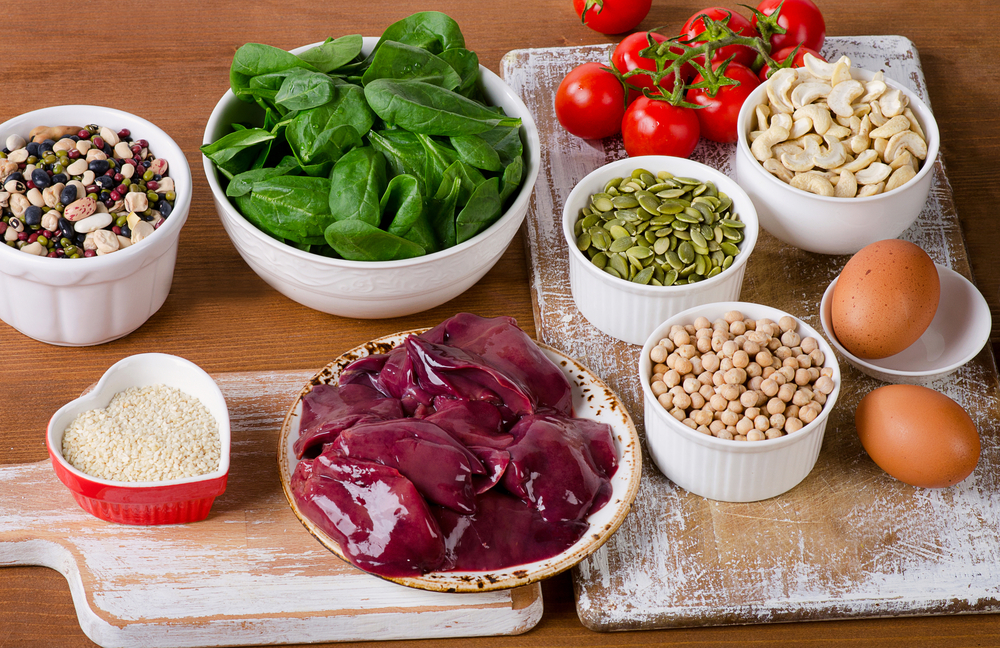Contents:
- Medical Video: Intermittent Fasting Meal Plan - How to Lose Weight Fast 10Kg with Intermittent Fasting Diet
- What types of food should pregnant women consume when fasting?
Medical Video: Intermittent Fasting Meal Plan - How to Lose Weight Fast 10Kg with Intermittent Fasting Diet
For Muslims, fasting is a compulsory worship that comes only a month in a year, namely during the month of Ramadan. Of course this is a long-awaited service and an opportunity that Muslims do not want to miss to compete in worship. Then, what about pregnant women who run fast during pregnancy?
Running fasting or not is an option for pregnant women. The ability to run fast during pregnancy depends on the condition of the pregnant woman and the fetus is healthy or not. However, if pregnant women continue to choose fasting, of course the menus that are eaten when breaking the fast and sahur must be considered more. Remember that the fetus needs good nutrition and is right for development and growth in the mother's womb. Do not make fasting as an excuse to limit the nutrients that the mother gives to the fetus. If maternal nutritional intake is lacking during fasting, this will have an impact on fetal growth and development. For example, a baby will be born with a low body weight, especially if the gestational age at fasting is still in the first trimester.
Although fasting during pregnancy can cause a condition called "accelerated starvation"(A condition in which hormones that regulate blood glucose are disrupted and blood glucose levels can drop dramatically), but this condition can be avoided by regulating your diet during fasting.
What types of food should pregnant women consume when fasting?
- Food menu when breaking fast and sahur must still pay attention to the balanced nutrition menu. This includes a diet that contains carbohydrates, animal protein, vegetable protein, fat, vitamins and minerals. Examples are rice, green vegetables, fish, tofu, tempeh, fruit, and milk. This menu containing complete nutrition helps the fetus fulfill the nutrients it needs.
- Choose complex carbohydrates. Examples: brown rice, whole wheat bread, whole wheat pasta, oatmeal, and beans, and also those containing fiber, such as vegetables and fruits, nuts, oats and seeds. This food takes a long time to digest so that hunger will come longer. Fiber also serves to prevent constipation.
- Increase consumption of foods that contain lots of protein. Examples: meat, fish, eggs and nuts. Large amounts of protein are needed for fetal growth and development.
- Limit sweet foods. Sweet foods help increase blood sugar levels that drop when fasting, but after that can cause a decrease in blood sugar levels quickly. This causes pregnant women to become weak and weak and can make them feel hungry quickly. The habit of eating sweet foods when starting iftar should be replaced by eating sweet fruits because it can help provide energy at the beginning of iftar. Certain fruits also contain fiber which can help your stomach to fill up longer.
- Also limit foods that contain high fat. This includes fried foods, cake, donuts, pizza, burgers, fatty meats, chicken skin, etc. Replace with foods that contain good fats, such as avocados, nuts, fish oil, fish, cheese, and others.
- Expand foods containing calcium. For example milk, cheese, yogurt, green vegetables, fish with bones, and others. These foods help provide enough calcium for the fetus.
- Drink a lot of water. You should drink around 1.5-2 liters a day to prevent dehydration. Also avoid caffeinated drinks such as coffee and tea because they are diuretic. This causes frequent urination and will result in losing more water.
Again, this is an option for pregnant women to undergo fasting or not. Pregnant women must be sure of their body condition when they decide to undergo fasting. You should consult your doctor before deciding.
If you choose to do fasting, support from your husband, parents, and surrounding people for pregnant women to undergo fasting is very necessary. People around can help remind pregnant women to maintain the intake they eat when fasting. Joosoph, Abu, and Yu (2004) research shows that 74% of 182 pregnant women who were respondents managed to fast for approximately 20 days during Ramadan. This success is achieved thanks to the support of husband and family, as well as the belief in worship.












